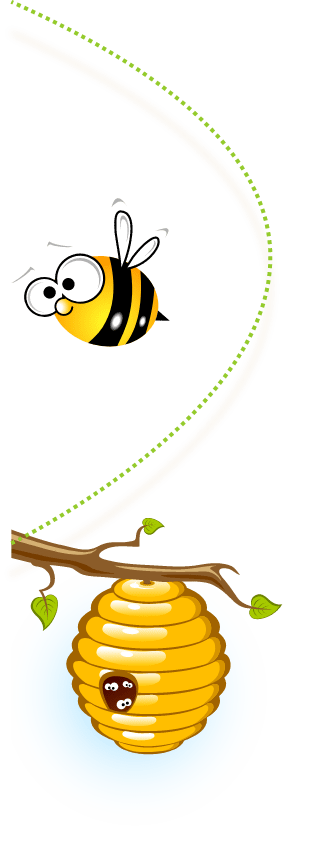
- Address 2148 Ocean Ave, Ste 401A, Brooklyn NY 11229
- Schedule Appointment
- Call Now 718-339-1810

Preventive dentistry is always the best approach, and most times, it is possible to prevent dental disease and dental problems from occurring. A preventive approach includes home oral care and professional preventive kids and teens dentistry, but other factors can greatly influence oral health. These include dietary habits and even fashion trends like oral piercings. One of the most detrimental habits for oral health is tobacco in any form.
You have probably heard the phrase “You are what you eat,” and while diet can affect your overall health, it also impacts your oral health too. For children, a healthy diet is even more important while they are growing and developing.
Children who eat too many sugary items like cakes and cookies, or consume sugary beverages, including fruit juice, are more at risk of tooth decay. Starchy foods like potato chips and pretzels will have a similar effect as the starch is converted into sugar. The longer these foods remain on your child’s teeth, the greater the risk of tooth decay.

As a parent, you can ensure your child eats healthier, more tooth-friendly foods that aid growth and development, and you can teach them how to make healthier food choices as they grow older. Here are some tips on which foods to include in your child’s diet and which to avoid.
Fruits and vegetables are packed full of vitamins and minerals and make a great snack between meals. It is best to give your kid fruits and vegetables with a high water and fiber content, such as celery, apples and pears, and carrots. Bananas contain more sugar, so they are best eaten as part of a main meal.
Avoid giving your child dried fruits, even though they are frequently conveniently portioned into snack boxes. Dried fruits contain concentrated amounts of sugar, and because they are sticky, tend to stay on teeth for longer, and are trickier to brush away thoroughly.
If your child does eat fruits containing higher levels of sugar, ensure they brush their teeth soon afterward.
Cheese is excellent as a snack or during the main meal. It contains calcium that helps to strengthen tooth enamel, so it is more resistant to tooth decay.
Harder cheese, such as cheddar or Swiss cheese, is better because it helps to stimulate saliva flow. Saliva is a protective fluid that helps to wash away excess food particles and some bacteria, helping to keep the mouth fresher between brushing and flossing.
Sugar-free dairy products like plain yogurt are also good for children as they contain calcium and protein. If your child dislikes the taste of plain yogurt, flavor it with fruit.
Ideally, serve as few snacks as possible, ensuring your kid gets into the habit of eating regular meals instead. Frequent snacking exposes teeth to harmful sugars and carbohydrate-rich foods for longer. Every time they eat something sugary or starchy, cavity-causing bacteria use the leftovers for fuel and produce acid as a by-product.
The acid will attack their tooth enamel, eroding it, and eventually causing cavities, an issue called enamel erosion. The more often your child snacks between meals, the greater the level of enamel erosion.
When your child needs a snack between meals, give them something tooth-friendly like cheese, plain yogurt, or fruits and vegetables.
Fruit juice may seem healthy, but it is packed full of sugar, and your child should eat the fruit rather than drink its juice. Soda is bad for teeth, and sugar-free soda contains harmful acid that will erode tooth enamel. Even milk contains sugar, although it also contains calcium and other helpful vitamins.
Ideally, when your child is thirsty, give them plain water. Water cannot harm their teeth, is excellent for rehydration, and helps to wash away food particles around teeth. Also, when your child is well-hydrated, they can create plenty of saliva, which is essential for a healthy mouth and strong teeth.

If your child still has a bottle, never put them to bed with a bottle containing anything sugary such as juice, milk or formula, or soda. Give them plain water if they are thirsty.
It is unrealistic never to expect a child to eat sugary foods but try to make this a rare event rather than the norm and give them these foods as part of the main meal. When your child has a main meal, their mouth is already more acidic and remains so for half an hour, at least afterward. Eating a treat with the main meal reduces the damage it can do to their teeth.
Granola bars, dried figs, and oatmeal cookies all sound healthy but contain hidden sugars. What is worse is that these foods are very sticky so that they can remain trapped around teeth for hours until your child brushes and flosses their teeth. If your child does eat these foods, get them to clean their teeth soon afterward, after waiting at least half an hour for acidity levels in their mouth to reduce.
Please remember at Pediatric Dentistry Center in Brooklyn our dentists can offer dietary advice if needed and can analyze your child’s diet to see if there are any ways to make it kinder to teeth. This information can be very useful if your child has had a few cavities recently, despite an excellent oral care routine.
Pediatric Dentistry Center
2148 Ocean Ave, Ste 401A
Brooklyn, NY 11229
☎ 718-339-1810


